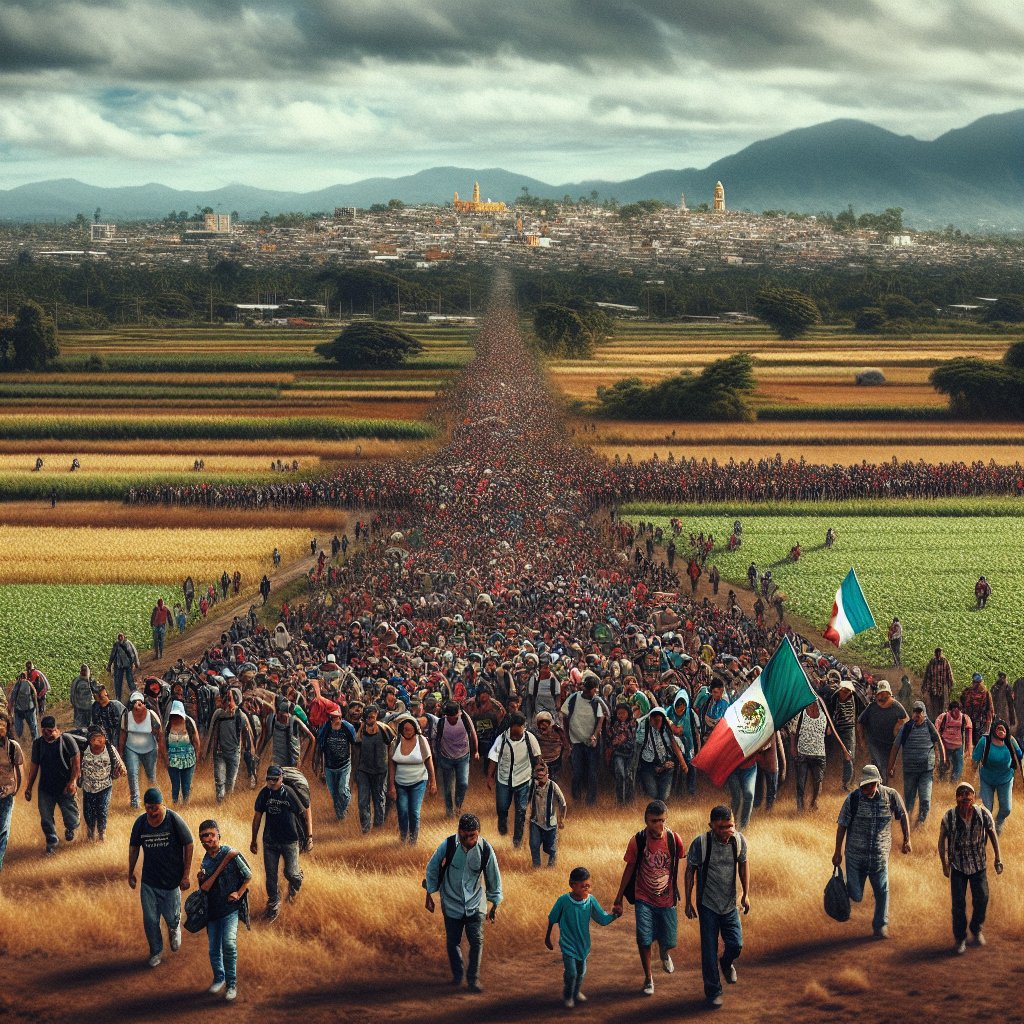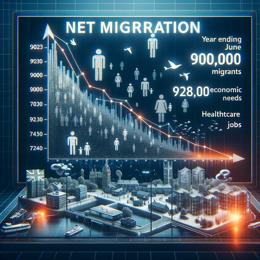Content created by AI
Surge in Migration Challenges U.S. and Mexico as 6,000 Journey Northward
Tapachula, Mexico, recently witnessed the departure of an estimated 6,000 migrants heading toward the U.S. border, marking the largest such caravan since June 2022. Spanning multiple nationalities, including Central Americans, Venezuelans, and Cubans, the group's movement signals a critical moment for both U.S. and Mexican migration strategies, which appear to be under significant strain.
This unprecedented migration comes just days ahead of U.S. Secretary of State Antony Blinken's scheduled discussions in Mexico City, intended to revisit and reinforce agreements to manage the soaring numbers of migrants. However, as this latest caravan illustrates, the effort to offer sustainable solutions has yet to achieve its desired impact.
The origins of this expansive migrant caravan lie in the city of Tapachula, near Mexico's southern frontier with Guatemala. The precedent of prior convoys suggests a familiar pattern in which Mexican security forces await the physical weariness of the travelers before they issue temporary legal status, a tool commonly used to progress north.
Participants in the caravan, such as Honduran native Cristian Rivera, express their exasperation at the lack of response from authorities and their hope that their collective action might expedite their ability to travel onward.
Complications have further arisen from the May accord, where Mexican President Andrés Manuel López Obrador agreed to admit certain migrants barred by U.S. policies, intended to suppress the surge of post-pandemic migration. However, with increasing migrant arrests at the U.S. southwest border, disruption to bilateral trade, and mounting U.S. political tensions, the challenges loom larger than ever.
Moreover, the current migratory landscape has been altered by technology, allowing individuals easier means to flee from poverty, catastrophes, and violence. In this vein, López Obrador has proposed to the Biden administration the softening of sanctions on countries such as Cuba and Venezuela and to elevate aid to Latin American nations, aiming to confront the root causes of migration.
Nevertheless, Mexico faces its own limitations, as evidenced by the suspension of internal migrant transfer programs due to financial constraints. With record numbers of migrants and asylum requests, the pressure on Mexico's infrastructure and resources is palpable.
The anticipation builds as the U.S. delegation, including Homeland Security Secretary Alejandro Mayorkas and White House security adviser Liz Sherwood-Randall, prepares to engage in talks with Mexican officials. The outcomes of these discussions could be instrumental in shaping the trajectory of migration and border policies in the tense months ahead.










